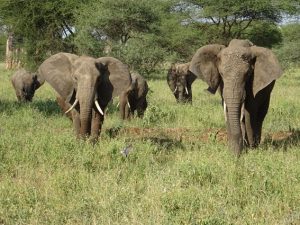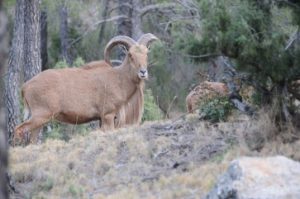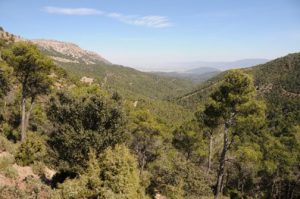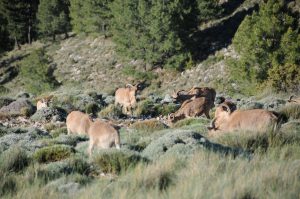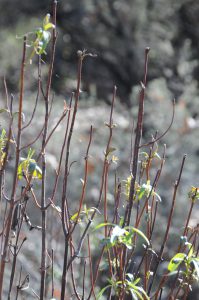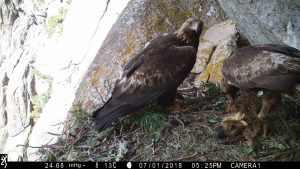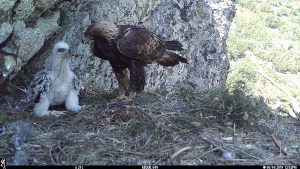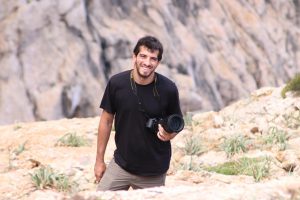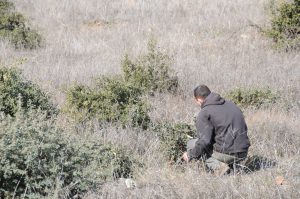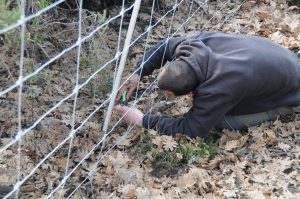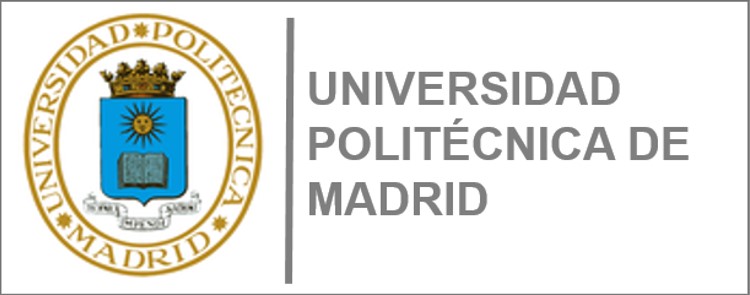People
– MARTA PELÁEZ. Postdoc. Margarita Salas Fellow
Thesis defended in 2020 with the title “Effects of environmental variation on the reproduction of two widespread cervid species”. EXTRAORDINARY DOCTORAL AWARD and SECF Award (Spanish Society of Forest Sciences). Currently as Margarita Salas postdoctoral Fellow at Stanford University and UPM
Thesis available at https://oa.upm.es/63289/
– MARÍA MONTERO-BOTEY. PhD student. UPM Fellow
She recentley defended her PhD on Management for the conservation of elephant-dominated lands in Tanzania (Africa). Her doctorated received Summa Cum laude and Intenational Mention and was awarded as the best PhD thesis in International Cooperation. Currently she is working in Tanzania.
Montero-Botey, M., Soliño, M., Perea, R., Martínez-Jauregui, M. (2021) Exploring rangers’ preferences for community-based strategies to improve human-elephant coexistence in African natural corridors. Animal Conservation. https://zslpublications.onlinelibrary.wiley.com/doi/abs/10.1111/acv.12700
Montero-Botey, M., San Miguel, A., & Perea, R. (2020). Food preferences determine human–elephant coexistence in African woodlands. Oryx, 1-8.
https://www.cambridge.org/core/journals/oryx/article/food-preferences-determine-humanelephant-coexistence-in-african-woodlands/8A69CAA53E90DABAC7B08BFF2227E2C2
Montero-Botey M, Soliño M, Perea R, Martínez-Jaúregui M. 2022. Let’s give voice to local farmers: Preferences for farm-based strategies to enhance human-elephant coexistence in Africa. Animals 12(14): 186
Montero-Botey M, Perea R. 2023. An increasing human-elephant conflict? Impact of African elephant on cultivated cashew trees. European Journal of Wildlife Research 69:5. https://doi.org/10.1007/s10344-022-01629-z
Montero-Botey M, Perea R. 2023. Infrared barriers as a tool to reduce Human-Elephant Conflicts. Wildlife Biology. https://doi.org/10.1002/wlb3.01124
– MARIO VELAMAZÁN. Former PhD. Current researcher at UMH
My thesis (defended in Feb 2019) focused on the ecology and management of semiarid Mediterranean systems dominated by Barbary Sheep (Ammotragus lervia). Barbary sheep are wild ungulates that were introduced in 1970 in Sierra Espuña, Murcia (Spain). I investigate the effects of Barbary sheep on threatened and widespread taxa as well as the effects of management practices (firebreaks, artificial supply points, silviculture) on the habitat use to ensure sustainable populations and natural regeneration. Currently at UMH and still collaborating with PAELLA Lab.
– MIQUEL CAPÓ. Postdoc. Juan de la Cierva Fellow
Currently working on biotic interactions (herbivory and microbial communities) in relation to wild ungulate populations at UPM
https://scholar.google.es/citations?user=SsM-7QQAAAAJ&hl=es

– DANIEL GAMBRA. PhD student. CAM Industrial Doctorate with TAGONIUS
Doctoral thesis on Golden eagle ecology and its relationship with ungulates at Aequilibrium project https://aequilibrium-project.org/
– GUILLERMO CARRANZA. PhD student. CAM Doctorate
Doctoral thesis on oak regeneration ecology and restoration. He is mainly analyzing the joint effect of herbivory and drought on oak seedlings and how to use different treatments to increase the efficacy of assisted oak regeneration.
– CARMEN RELLO. PhD student. Industrial Doctorate
Doctoral thesis on the spectral response of plants to stress, particularly herbivory and drought stress, using field spectro-radiometers, drones and and satellites. Working with the DASOTEC company
– JOSÉ LUIS CHARRO. PhD student.
Doctoral thesis on wildlife management in Argentina and Spain, with special focus on game and livestock species effects on vegetation and management schemes.
– ALBA GÓMEZ MUÑOZ. Technician
Field and lab technician at PAELLA Lab with research interest on the effects of ungulate herbivory on wildfire risk
COLLABORATORS AND RELATED LINKS
- PAELLA Lab Member. Alfonso San Miguel, UPM
- Species interactions. Dirzo Lab, Stanford.
- Oak ecology. INECOL, Mexico. Dra. Fabiola López-Barrera
- Ungulate ecology and health. Universidad Autónoma de Barcelona-SEFAS
- PAELLA Lab Member. Alfonso San Miguel, UPM
- Forest Genetics and Physiology. Luis Gil, UPM.
- Scatter-hoarding behaviour. Steve Vander Wall, University of Nevada, USA.
- Mutualism ecology. Christopher Moore, Ohio, USA
- Modelling seed dispersal. Restoration Ecology. James Bullock , CEH, UK
- Plant -animal interactions. José María Fedriani , CEABN, Lisbon University .
- Wildlife ecology, conservation and management. María Martínez-Jáuregui, INIA
- Man-made systems . Plant -animal interactions. Mario Díaz, CSIC
- Ecology and forest management. ECOGESFOR, UPM.
- Grassland ecology , dehesas. Aida López-Sánchez, UCAV, Spain
- Biodiversity and Evolutionary Ecology. Geraldo W. Fernandes , UFMG, Brazil

